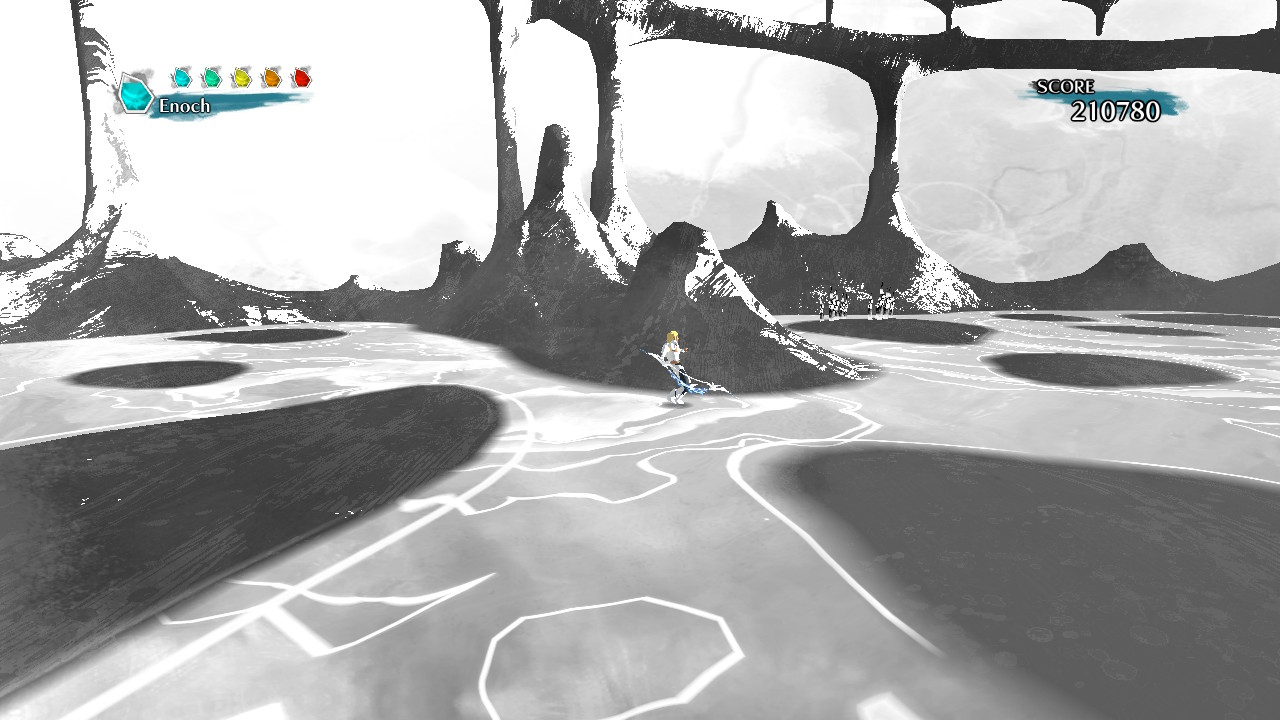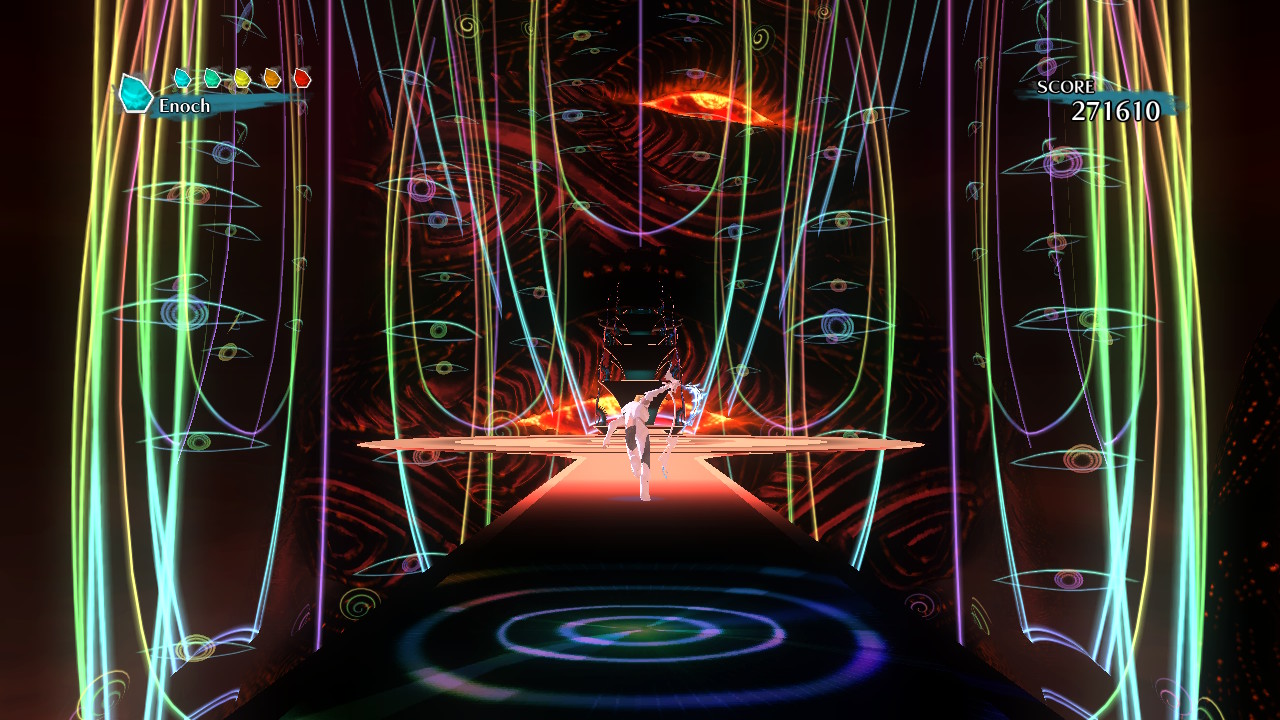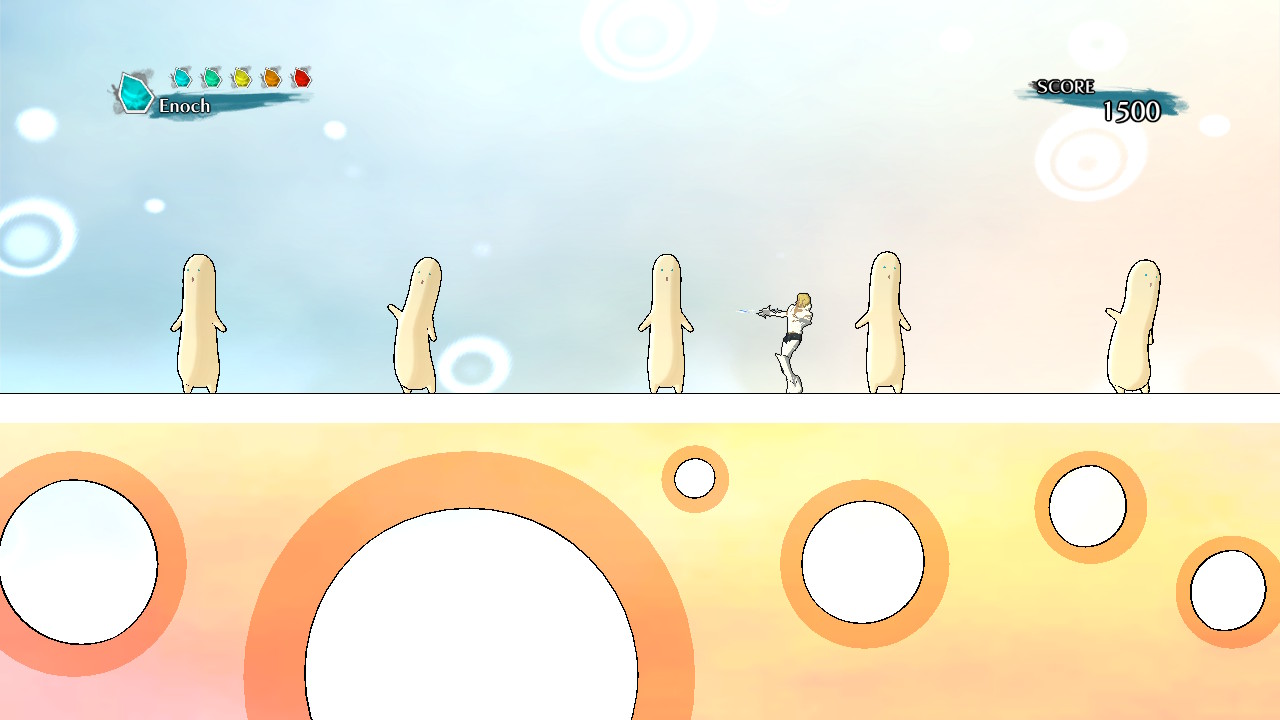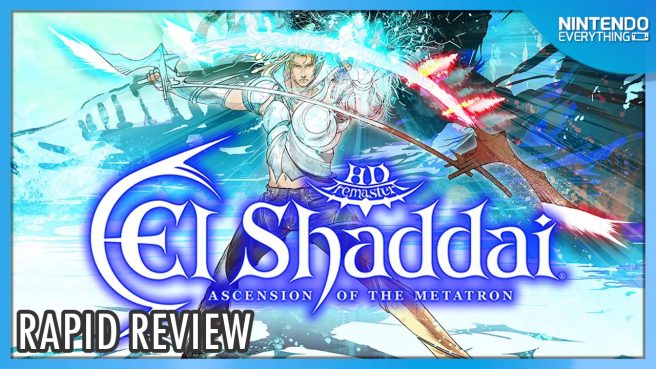[Rapid Review] El Shaddai: Ascension of the Metatron HD Remaster
System: Switch
Release date: April 28, 2024
Developer: Crim
Publisher: Crim
The seventh generation of video games was an interesting time, and gave us an abundance of action titles, with many becoming critically-acclaimed, genre-defining hits. El Shaddai: Ascension of the Metatron, released in 2011, never managed to make that kind of impact, although it did receive a particularly interesting continuation in The Lost Child six years later. Now thirteen years following its launch, the game has finally made its way to Switch in the form of El Shaddai: Ascension of the Metatron HD Remaster, largely due to fan demand. While it may still be destined to remain overlooked in the face of its far more successful contemporaries, it remains the unique and unforgettable experience it was when it first debuted, both for better and for worse.
El Shaddai fits very comfortably into the mold of mythology-based action game, although it draws heavily from the apocryphal Book of Enoch, which is a refreshing change from what has become the norm of Graeco-Roman mythology. The game tells the story of Enoch, a scribe who, commanded by God, has descended from Heaven in order to recover the Grigori, a group of fallen angels who have stolen a portion of God’s wisdom to give to humanity. This has accelerated their evolutionary process to produce the Nephilim, a dangerous hybrid species. Guided by the four Archangels and Lucifel, Enoch discovers the tower the Grigori have made their base of operations and must climb it and put a stop to their ambitions, before a flood is unleashed to end all life in response to their actions. You’ll receive some narration from Lucifel (who shows up constantly throughout as you progress, giving progress updates to God via mobile) but otherwise this is a game that is quite light on story, preferring to let its story unfold through visual imagery rather than more traditional, direct means of dialogue and cutscenes.

And if there is one area in which El Shaddai truly excels, it is in its artistic vision and level design. There is a palpable sense of progression as you ascend the tower, beginning with a primordial clash of colors that warp and grow steadily more riotous and vibrant as you progress, gradually advancing through various stages of development (some almost identifiable as conventional architecture) before you suddenly wind up in a landscape of bizarre geometric shapes that are simple in design yet disturbingly complex in their placement and function, hinting at a purpose beyond human understanding. Each new level of the tower offers its own set of visual marvels and surprises, and even over a decade later there isn’t anything else that quite compares to it.
Admittedly, El Shaddai’s visual spectacle works against it at times when playing. It can be particularly frustrating when you can’t see what you’re doing clearly and need to make a series of jumps to traverse the area, although these moments are fortunately few and far between, being stacked more towards the game’s final chapters than sprinkled throughout to constantly disrupt your journey. This is mitigated to some extent by the notable shadow that Enoch casts over the ground when jumping, but this doesn’t always eliminate the frustration caused by a combination of indistinct surroundings and entirely unhelpful fixed camera angles. Fortunately this does not carry over to the occasional side-scrolling sections that the game introduces, which play out like traditional 2D platformers and, although they require a little more precision, lack the awkward camera angles to frustrate that.

However, it is the combat that is the main element of the gameplay and what you’ll spend most of your time doing. Enemies are a little at odds with the scenery, being distinctly unimaginative and lacking in variety (even the major bosses are little more than indistinct, black-armored figures for the most part) but I didn’t feel as though this detracted from the experience. As with everything else in El Shaddai, combat is deceptively simple, yet contains some nuances that you’ll discover naturally as you play. The lack of information available to you is actually quite refreshing, with your only guidance on how well you’re doing being Enoch’s health and an entirely unhelpful (and ultimately meaningless, unless you choose to engage with it) score in the top corner. Bosses have health orbs similar to Enoch’s own, but otherwise your only indicator of when an enemy is about to perish is when they fall back and disappear in a flash of blue flames.
Enoch has three weapons in his arsenal, which form a very loose weapon triangle of sorts. What makes El Shaddai unique here is that you can only carry one weapon at a time: if you wish to change your weapon, you’ll need to find an enemy who is wielding it, attack them until they’re stunned, and then steal it from them. Each weapon has a limited number of light and heavy attacks, as well as special attacks, although it often feels like simple button mashing: enemies generally resist being stunned, and there are no progression systems you’d typically find in action games, such as unlockable skills or upgrades; you need to make do with the tools you’re given as you get them.

Combat is nonetheless fluid and responsive, although to me felt a little unpolished and haphazard at times. The fixed camera angles occasionally made it difficult to judge distance (although this is sometimes by design in some battles) meaning that I’d hit empty air, and enemies did an almost excessive amount of damage compared to Enoch. Although this frailty is entirely in keeping with the game’s premise and Enoch as a character, it made some fights drag on for slightly longer than they should have, and the lack of variety in moves can make it especially grating at times, particularly when you’re unable to speed things up by acquiring a different weapon. Fortunately, in boss encounters you will always have the opportunity to change weapons with static power-up items, and most combat encounters have a variety of enemy types, so these were often minor frustrations at most.
El Shaddai runs smoothly on Switch, with the occasional slowdown that occurs being by design rather than due to the Switch struggling to keep up with the action. However, it does struggle at times to load menus, with an awkward transition between pausing and resuming gameplay, and almost sluggish selection of options that doesn’t feel quite as responsive as it should. Although this doesn’t impact gameplay, it does feel out of place and is worth noting. The more cinematic moments where the gameplay does slow down can also feel out of place at times and throw off the otherwise fast-paced nature of the combat.
The Verdict

It isn’t difficult to see why El Shaddai: Ascension of the Metatron never made a particularly huge splash when it first released over a decade ago, and as action games have become more refined over the years it feels especially rough around the edges. However, it remains as visually spectacular and delightfully creative as it ever was, and is worth experiencing by virtue of its artistic direction alone.
El Shaddai: Ascension of the Metatron HD Remaster copy provided by the publisher for the purposes of this review.
